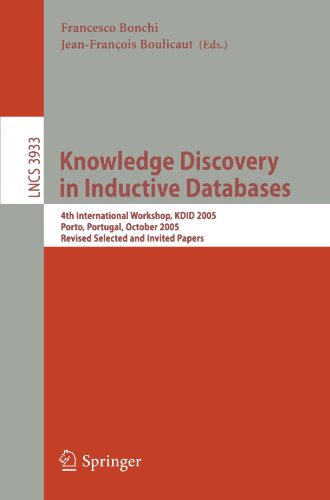

Most ebook files are in PDF format, so you can easily read them using various software such as Foxit Reader or directly on the Google Chrome browser.
Some ebook files are released by publishers in other formats such as .awz, .mobi, .epub, .fb2, etc. You may need to install specific software to read these formats on mobile/PC, such as Calibre.
Please read the tutorial at this link: https://ebookbell.com/faq
We offer FREE conversion to the popular formats you request; however, this may take some time. Therefore, right after payment, please email us, and we will try to provide the service as quickly as possible.
For some exceptional file formats or broken links (if any), please refrain from opening any disputes. Instead, email us first, and we will try to assist within a maximum of 6 hours.
EbookBell Team

4.8
94 reviewsThe4thInternationalWorkshoponKnowledgeDiscoveryinInductiveDatabases (KDID 2005) was held in Porto, Portugal, on October 3, 2005 in conjunction with the 16th European Conference on Machine Learning and the 9th European Conference on Principles and Practice of Knowledge Discovery in Databases. Ever since the start of the ?eld of data mining, it has been realized that the integration of the database technology into knowledge discovery processes was a crucial issue. This vision has been formalized into the inductive database perspective introduced by T. Imielinski and H. Mannila (CACM 1996, 39(11)). The main idea is to consider knowledge discovery as an extended querying p- cess for which relevant query languages are to be speci?ed. Therefore, inductive databases might contain not only the usual data but also inductive gener- izations (e. g. , patterns, models) holding within the data. Despite many recent developments, there is still a pressing need to understand the central issues in inductive databases. Constraint-based mining has been identi?ed as a core technology for inductive querying, and promising results have been obtained for rather simple types of patterns (e. g. , itemsets, sequential patterns). However, constraint-based mining of models remains a quite open issue. Also, coupling schemes between the available database technology and inductive querying p- posals are not yet well understood. Finally, the de?nition of a general purpose inductive query language is still an on-going quest.